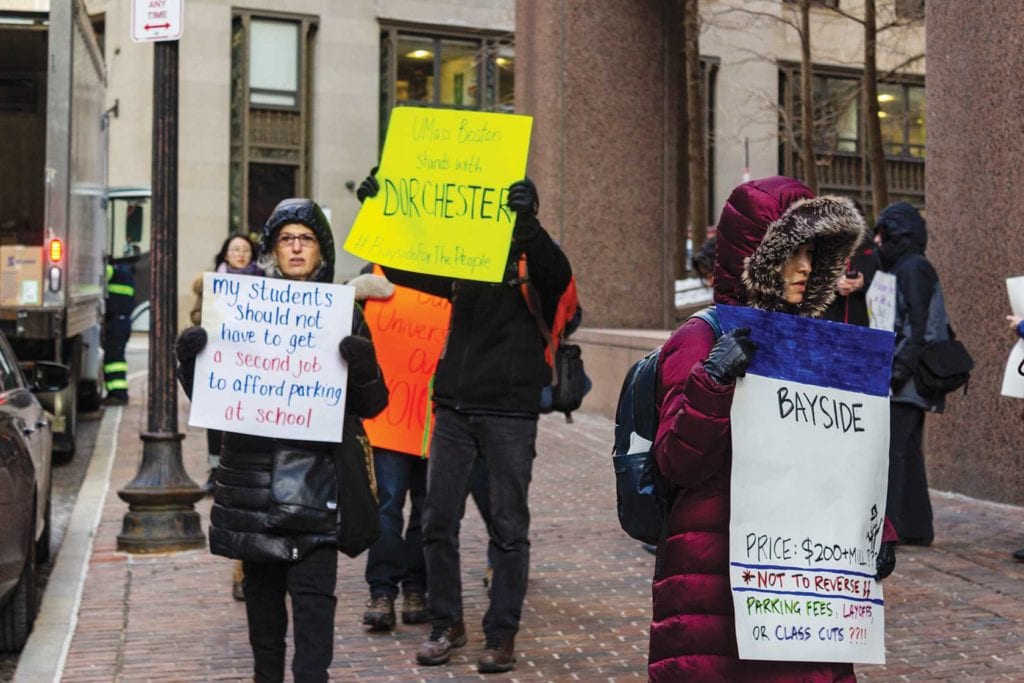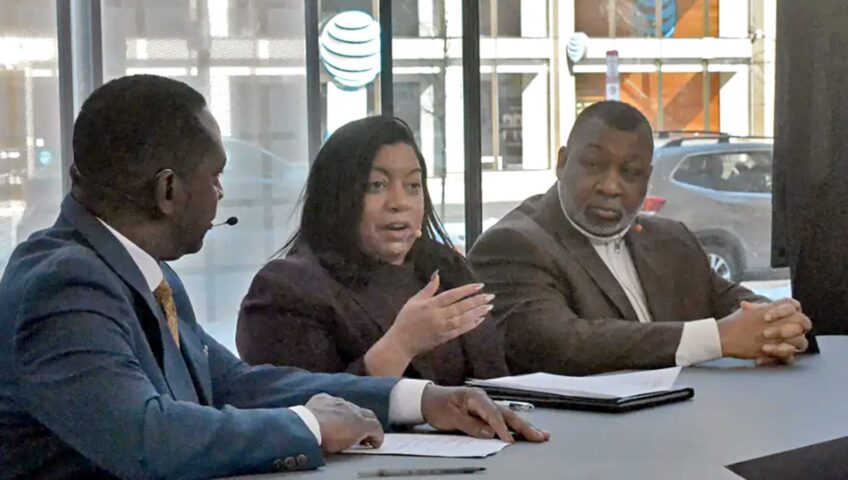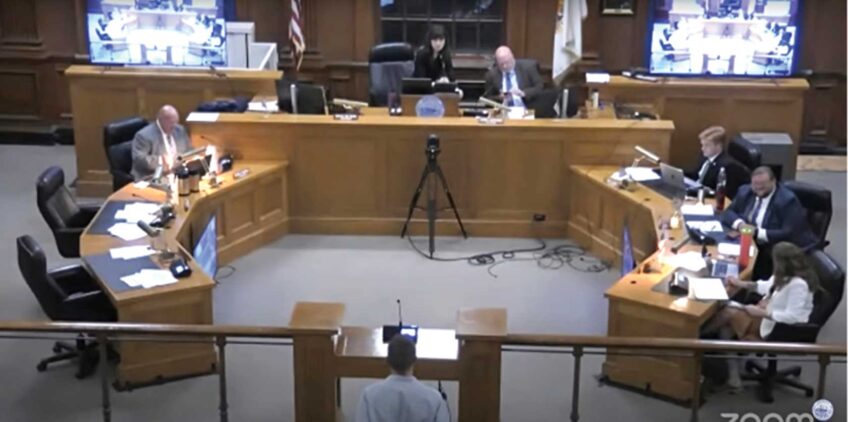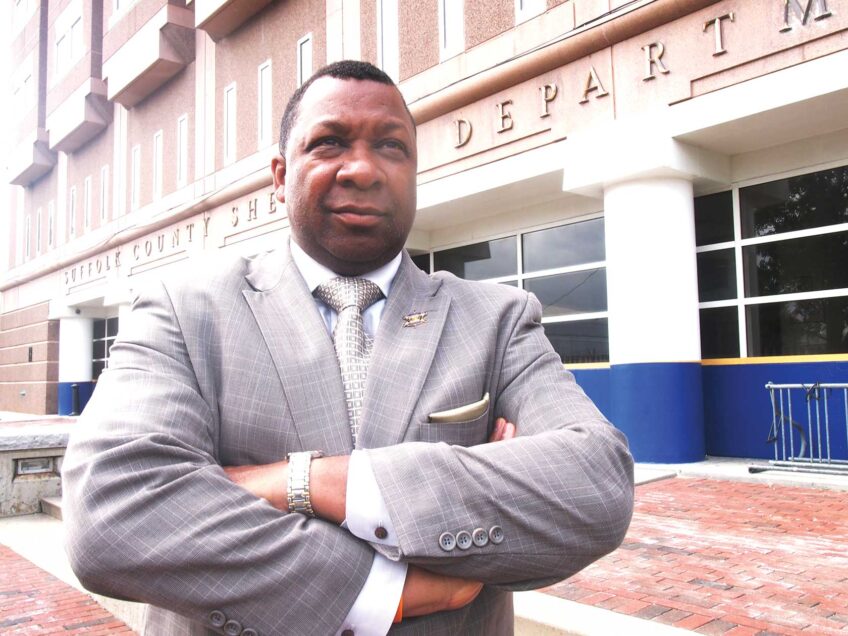UMass picks developer for Bayside site
Ground lease could net struggling university as much as $235 million

The University of Massachusetts has chosen a developer to build on the former Bayside Expo Center property in Dorchester, the board of trustees announced Thursday.
The board voted unanimously to work with developer Accordia Partners on the project, concluding an 18-month selection process.
The UMass Building Authority (UMBA) purchased the 20-acre property for $18.7 million from LNR Partners, Inc. in May 2010, and the school has mainly used it for parking since then. In 2017, UMass president Marty Meehan asked UMBA to begin the development process because of a need for new revenue for the Boston campus.
Rob Griffin, co-head of U.S. capital markets at Newmark Knight Frank, the real estate advisory firm that marketed the site on behalf of the university, said that the firm received a lot of interest in the project from developers, due to the property’s size and proximity to the university, the JFK/UMass MBTA station and the Boston HarborWalk.
Accordia Partners has proposed a mixed-use project of up to 3.4 million square feet at the Columbia Point site, which would include retail and dining, businesses and industry space and housing for students and faculty.
“This provides us with opportunities to build out academically, leaning toward the industries that come into Bayside, to provide opportunities for our students for internships and potential jobs,” said UMass Boston Interim Chancellor Katherine Newman. “For members of our community to participate in the laboratory opportunities that may be there, the construction jobs, the retail jobs, for the neighborhoods around us to benefit from the waterfront that will be preserved for their pleasure and enjoyment. It is an entirely incredible transformation of the near neighborhood.”
Under the terms of the deal, Accordia Partners will enter a 99-year ground lease for up to $235 million, with a minimum lease price of $192 million, more than 10 times what the university originally paid for the property. The developer has also committed to a $25 million investment in infrastructure improvements.
The developer was one of six that Newmark considered based on experience, commitment to diversity and equity, university partnership opportunities and price, as well as other criteria. The list was narrowed down to just two proposals in October.
City Councilor Frank Baker, who represents the area of Dorchester where Bayside and UMass Boston are located, praised the deal for benefiting the community.
“One thing that’s going to happen is not just UMass benefiting,” Baker said. “In the neighborhood we’re going to benefit from transportation, we’re going to benefit from job pathways that are created. This will also bring UMass, Dorchester and the City of Boston into the 21st century.”
Dissenting voices
Before the open board meeting Thursday, a group of UMass Boston students and faculty stood outside protesting, chanting, “Meehan keeps us in the dark. Where are students gonna park?”
Many UMass Boston students and staff park on the Bayside property every day. Earlier this month, university workers staged a protest at a raise in parking rates on the campus from $6 to $15 per day.
Faculty and staff union President Marlene Kim explained that many members of the campus community were concerned about the deal, because the board had not kept them clued in during the selection process.
Kim noted UMass Amherst’s purchase of Mt. Ida College last year, which ruffled many feathers as the university promised not to offer competing degree programs at the campus, a promise which she says has not been kept. Meanwhile, the Boston campus has dealt with budget cuts and staff layoffs, as well as extensive infrastructure issues.
“We are promised that proceeds from Bayside will come to us, and we want to make sure that promise is not broken,” Kim said. “We’re upset that in these major decisions, the campus community has no input. We should have a say, but everything is done behind closed doors.”
In a press conference following the board meeting, Newman addressed these concerns, confirming that the proceeds from the developer agreement will go toward infrastructure and budget issues on the campus, and saying that while they were unable to share the details of the deal until now in order to protect the agreement, the process would include input from students, faculty and the surrounding community going forward.
She specifically mentioned the extensive construction currently going on on the campus, including the demolition and reconstruction of the school’s science building and substructure, a $155 million project which the proceeds from Bayside will help pay for.
“We would’ve had to borrow, and now I think we won’t have to,” Newman said. “We can look forward to the point that those funds will help us financially cover the cost of that substructure.”
Newman also said that while there is not yet a solution in mind for extra parking space as the plans for the site have not been finalized, they do plan to build more parking. During the planning process parking on the property will remain available, a period of time which the developers expect to last at least one year.
“It’s the first day of the next iteration of UMass Boston,” Newman said. “The resources that come out of this will enable our campus for the first time to chart its own future.”






